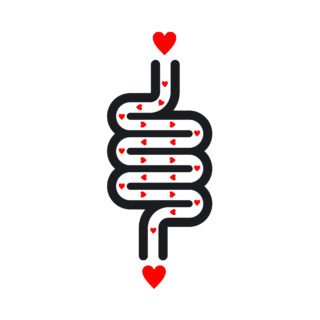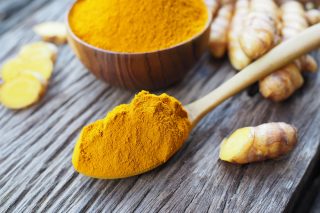Do you experience bloating, tummy discomfort? Perhaps constipation or diarrhea? Do you suffer from heartburn? Do you feel stressed? As with many people, your gut may be the cause.
The gut is often referred to as our second brain
Our emotions are often felt in our gut. For example, we get “butterflies in our stomach when we are anxious”. Our gut is responsible for producing ninety percent of our serotonin. Serotonin is the neurotransmitter that works on our brain to calm us. Hence, when our gut is unhealthy, we feel anxious, depressed and often experience insomnia.
Physiologically, our gut is actually “outside” our body (external to our blood vessels and organs). It’s normally populated by an abundant ecosystem of beneficial bacteria. As humans, we do not have the enzymes to break down plant fiber. Because of this, we rely on these useful bacteria to digest plant fiber and make them available for our nutrition.
The next time you want to eat sweets, blame your bacteria!
In fact, the volume of bacteria outweighs our own cells ten-fold. Conspiracy theory suggests that we are mere vessels for these bacteria which can influence our emotions via the vagus nerve. This nerve directly connects the digestive system to the brain. So the next time you have an insatiable desire to eat something sweet, blame it on these bacteria!
Unfortunately, an unhealthy gut leads to many ailments. When the gut is inflamed, tiny bacterial fragments breach the gut barrier and enter the bloodstream, hence the term “Leaky Gut” or Irritable Bowel Syndrome (IBS). If left untreated, this can progress to Crohns Disease, diverticulitis or ulcerative colitis. These foreign bacterial particles enter the bloodstream, triggering an immune reaction. It can often run into overdrive, resulting in allergies such as eczema, sinusitis, asthma and autoimmune conditions such as psoriasis, thyroiditis, rheumatoid arthritis, and lupus.
If left untreated, the inflammation can also affect our blood vessels leading to atheromas, plaques and coronary artery disease. Unfortunately, our children are not spared either. In addition to allergies, if their digestive systems are unhealthy, they could suffer from ADHD, anxiety, autism, and concentration difficulties.
So how do you ensure a healthy gut?
Here are 8 practical suggestions to help your gut recover and keep it functioning optimally:
- Think gut health if you or your loved ones suffer from certain conditions that may seem unrelated to the digestive system. For example, allergies, skin rashes, anxiety, depression, and autoimmune conditions.

- Avoid allergenic foods such as wheat (gluten) and dairy, as they inflame the digestive system.
- Avoid indiscriminate use of antibiotics. They kill off useful bacteria resulting in the overgrowth of harmful bacteria in our gut.
- Avoid antacids and typical medication for stomach ulcers and reflux. They make the stomach content too alkaline, resulting in insufficient acid to kill off the harmful bacteria in our gut.
- Take a course of probiotics to repopulate the digestive system with good bacteria. Change your probiotic brand every 2-3 months to obtain additional useful strains of good bacteria.
- Add certain amino acids, such as L-glutamine to your morning regimen to enhance your gut healing.

- Include in your diet liberal amounts of anti-inflammatory foods. Ginger, turmeric, and garlic are good options. It is best to eat the natural forms of these foods as they have many useful nutrients. However, they are also available in medications for your convenience. Click on this link to discover how you can defy aging with turmeric this year.
- If you suffer from frequent constipation, magnesium glycinate provides natural relief.
Effective recovery of the gut could take several months
But it is well worth the effort as you will experience improvements in your allergies, autoimmune conditions and emotions. And one day you will wake up feeling great when these symptoms have disappeared! Click on the link to find out more about how the food we eat affects our mood.

About the author
Dr Dhesan Moodley is an experienced international integrative and functional medicine specialist with a specific emphasis on early detection and management of common medical conditions. Dr. Moodley currently travels and consults between South Africa and the USA.




![women [longevity live]](https://longevitylive.com/wp-content/uploads/2020/01/photo-of-women-walking-down-the-street-1116984-100x100.jpg)










